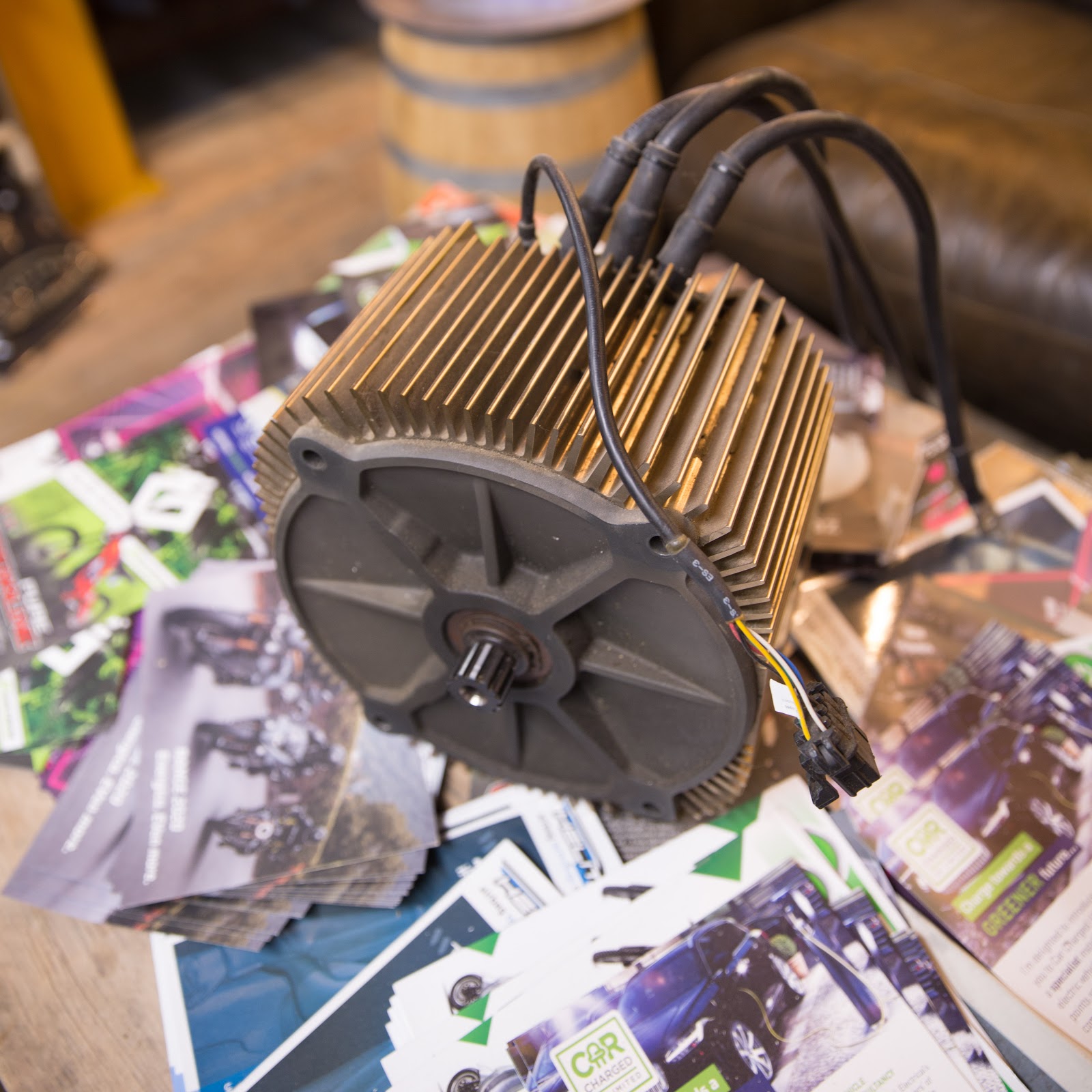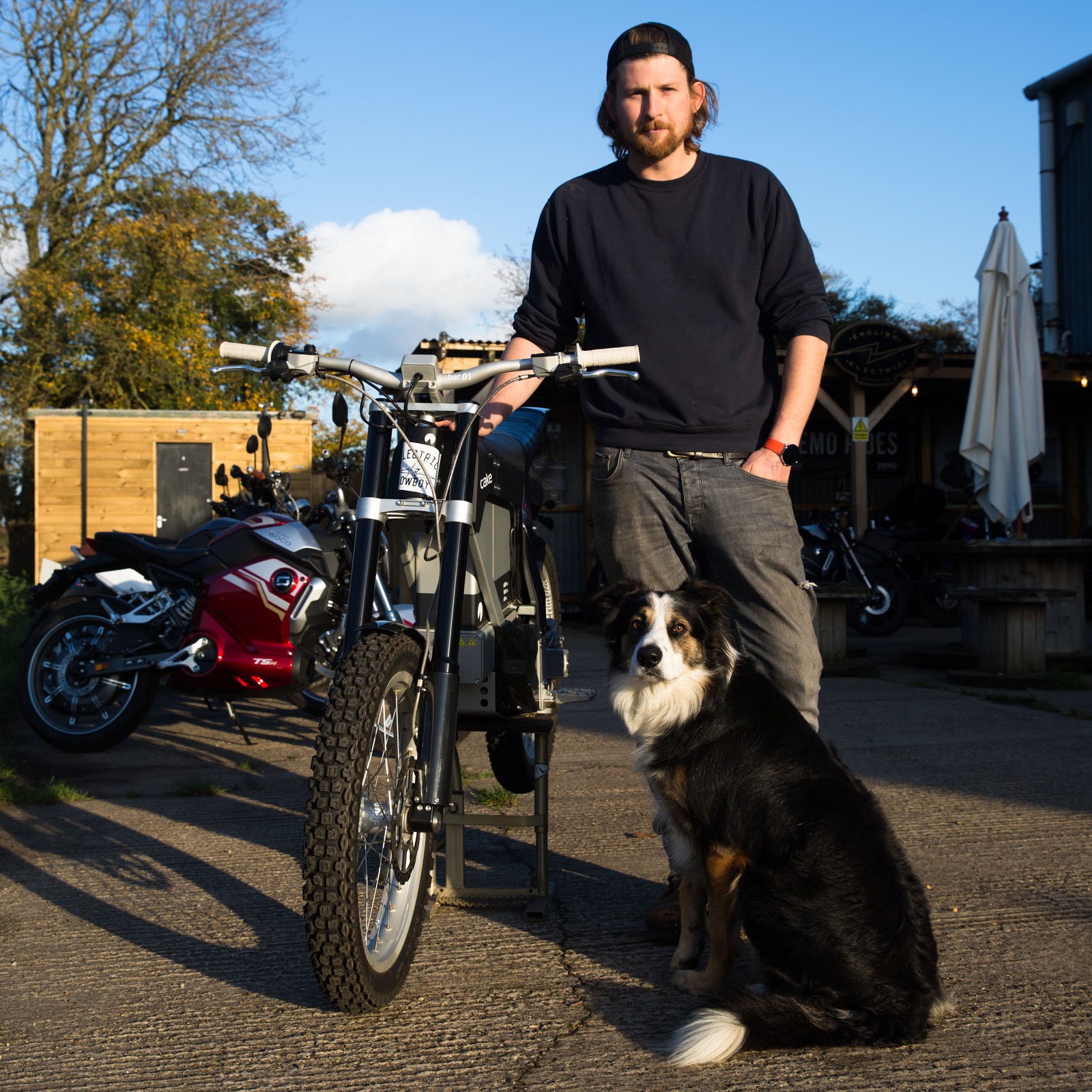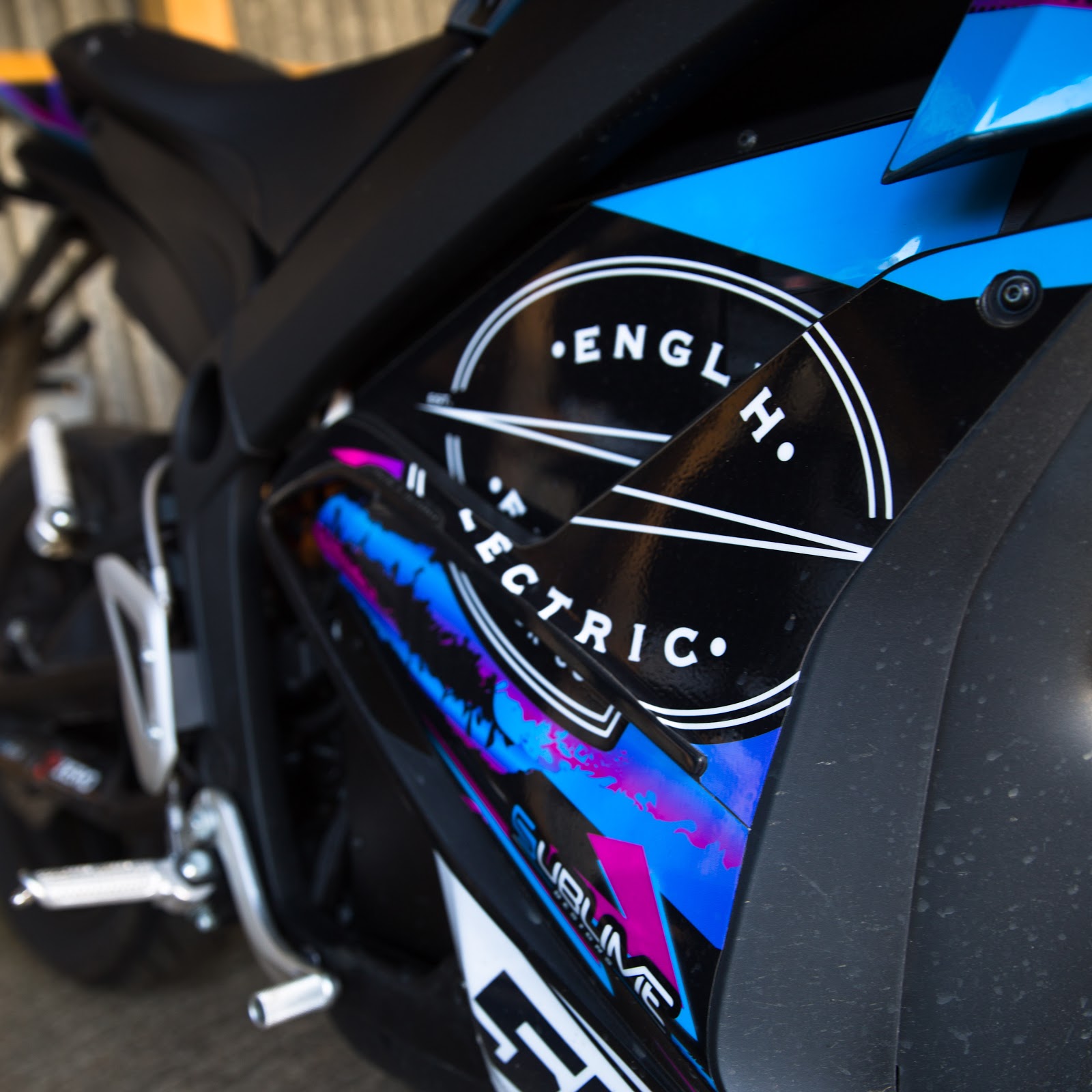"The world of electric biking can be bewildering. We had a look around at what’s available - so you don’t have to! Here is a fistful of interesting electric bikes for every purpose. Entry Level Scooter Staggering statistic "
The Resistance: English Electric and the alt.bike underground
English Electric is Britain’s go-to retail and service centre for the emerging culture of electric motorcycles. With a background in the custom bike scene having founded Old Empire motorcycles in 2011, founder Alec Sharp made a bold move in 2017 when he decided to plant his flag in the Electric earth – augmenting and subverting the greasy, unsustainable certainties of the alt.bike scene. We caught up with Alec in the English Electric workshop and showroom and discussed the purity, resistance and wonder of an Electric biking’s present and future.
Influx: Riding an electric bike is quite a ‘pure’ experience. All you have to think about is the ride itself. How would you describe the difference between an electric bike and a bike with a petrol engine?
Alec Sharp: Riding for a few years you realise that all bikes have their own unique character. And electric bikes are no different. Every bike has its own unique ride. Some will be louder than others. Some have gearboxes, so you hear a whine from cogs, or you can hear the belt mechanism as it winds. In terms of the actual riding experience, with no clutch or gears, I think it is a purer form of riding. You are really in tune with where you are riding, how you are riding. I think it improves your riding, and makes it easier for a lot of other people who are put off by a loud bike to get into motorcycling. We get a lot of negativity from people saying ‘you will never catch me on an electric’, etc and fair enough. But then these are the same guys who are saying: ‘It’s a shame there isn’t any new blood coming into motorcycling’. Well maybe it’s because most of the motorcycling demographic is of a certain age and gender, and when you think of a Harley, you think of big leather padding, big noise and all that machismo. But when you think of an electric motorcycle, can you stereotype that? Not really, not at the moment. So I think it opens motorcycling up to a lot of people, which is really important. It is something that me and Gary Inman at Sideburn spoke about, which was about getting people into tinkering with their bikes and into motorcycling, especially younger people. And I think that is another facet of the emerging culture of electric bikes. Gary, Sideburn and the flat track scene brought all sorts of people into motorcycling – and I think electric bikes will too.

What was your first thought about the resistance to the power of electricity?
AS: What I couldn’t understand was why electric bikes weren’t being embraced like I thought they should be. I was blown away by electric as soon as I had a go on one – and I presumed everyone would be. Most people’s knowledge and viewpoint on electric bikes seems to be very outdated. People think ‘battery power’; they think about the weight, they think they run out quickly, that they take a long time to charge, that they are expensive to replace. And yes, some of these elements are still the case, but things have come on leaps and bounds since the earliest days. And I think that is what is holding people back, because as soon as you go electric you can’t help but be impressed. It was similar to the whole thing about hydrogen, where people were saying, ‘why isn’t hydrogen as popular as a viable alternative to combustion?’, and the biggest problem is, the first thing that pops in people’s heads when you say hydrogen is a bomb, so we have got some issues. But when you say electric to people, it is like utilities, appliances, it is not something that inspires any adrenaline or anything like that. And that is the issue. So the idea was, when we got set up, was if we can offer this opportunity for people to see us come from the background that we had, and get into electric, to see that actually there may be something more there than what we think, and take it from there.
So not all electric bikes are overly expensive?
AS: Price is a relative thing. The cheapest way to get on two wheels is to buy a second-hand combustion bike. You can get one for about £200, because they have been around forever. But the fact is that I can offer you a brand new electric scooter for commuting for £3,000, with a removable battery, a three-year 20 or 30,000 mile warranty on the battery, and two years on the bike. On a finance scheme, that works out at about £15 a month. To me, that is pretty affordable. It is more expensive than buying a £200 or £300 wreck, but that will probably crap itself down the line, and is going to be expensive to run, with MOT and everything else. We have the little Sur-Ron ones, which we sell loads of, that have a removable battery, they are around £4,000. You can get anywhere between 20 and 60 miles out of them, which is pretty reasonable, and you can 45mph top speed. The power delivery is phenomenal. All the power comes instantly, there are no gears and the bikes come with different rider modes. And a huge factor is the silence. We have a dirt track out the back, and a tap room next door. Over the summer we had events with 300-600 people, and we had 10 people riding round on Sur-Ron, and apart from seeing a helmet pop up and go down again, you wouldn’t have known they were there! That’s what I love, that’s the real benefit to the electric is the noise factor. You can run at night, on a holiday, next to anywhere, and you don’t have to worry about it.

Many people who ride bikes care about the heritage of the brand don’t they? They might be great little machines, but a Sur-Ron doesn’t have the caché of a Harley – or even a KTM – does it?
AS: That’s true. Most mainstream manufacturers are looking into electric. Harley has released the Live Wire. Triumph, about a year or two ago, announced a five-year partnership with a university and a battery R&D company in Leicester to develop something in that period. Honda did an Electric CRF design, but we haven’t heard much about that. All the brands have something in the pipeline, but no real firm, other than Harley, has had dates on releasing anything for production. I think the reason is because they are waiting for the market to mature. So what you will see is these smaller guys take the hit, make the mistakes. You might even see some of these guys bought up by the bigger manufacturers. I think, personally, that the electric has opened up an opportunity for smaller guys to get back into the market again. So, a real good comparison, I think, is the introduction of the combustion engine on a big scale, at a low price, in the late 1800s, anybody and everybody who was a bicycle manufacturer started putting engines in their bicycles. We used to do some research on old brands, and pre-WWI, I am sure there were hundreds of bicycle manufacturers who would buy a crate engine from JAP or whatever, and chuck them in a bicycle, and that was a motorcycle. I reckon on a monthly basis, there are at least two or three new startups offering different electrics.

How about the battery life question – and how green it actually is to ride an electric motorbike? There’s a lot of controversy that at least at the lower end of the market, that electric push bikes become landfill very quickly, once the battery dies.
AS: We can see progression from E-Bicycle to E-Motorcycle. There are no real differences between the in-built redundancy of electric bikes than that of electric cars. The battery packs in nearly all electric motorbikes are removable, so we could take those batteries out of any of the bikes. Some of the lower capacity stuff comes with removable batteries as standard, so they are easily upgradable, easily fixable, easily replaceable units. A lot of our bigger bikes, which have bigger batteries, they are just not going to be as easily removable. For example, with the Zero bikes, the cradle that the battery is housed in can be replaced, and possibly upgraded in the future. The recycling of the battery and what happens with that is a completely separate issue. At the moment, there are only a handful of people that will deal with battery recycling. There is not a single company in the UK that will recycle it. All lithium batteries have to be exported to be recycled. This is obviously a significant cost. And when they are recycling them, at the moment, the average percentage of recycling is only 50%, so you will only get 50% back from that.
But by getting into electric bikes, it means that emissions are cut and that is after all the most pressing concern right here and now, right?
AS: Yes. I think it is important for people to understand that it is by no means a perfect process yet, but we are only in the first couple of decades of this completely new thing. So we are at the very starting point of something which can only get better and better, whereas whatever you do with combustion, you are still taking something out of the ground. So I think there is a lot more opportunity here. Electric bikes are all about building a different relationship with what it means to ride. You might not like the way a Tesla looks, but when you realise how well they go, you realise that the engine doesn’t really have to be part of the experience. It is just as good as other proper cars, but it is just different. I don’t think combustion and electric bikes should really be compared. The fact is, it is just a different motorcycle. It is not a replacement, it is not better or worse, it is just different. There are elements of it that will do things better, but honestly I don’t think there is a better bike to commute on than electric. Imagine getting up to go to work on a Monday morning and you’ve always got a completely full tank? So apart from how fun these bikes are to ride, there’s real power in that.
CLICK TO ENLARGE









